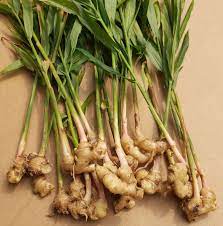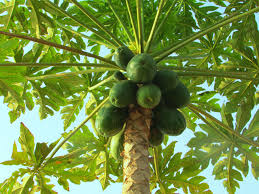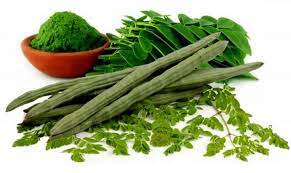
Ginger, with its distinct aroma and flavor, has been a prized ingredient in cuisines and traditional medicine for centuries. Derived from the rhizome of the Zingiber officinale plant, ginger boasts a rich history and a multitude of uses.
Ginger's pungent, zesty flavor profile has made it a staple in kitchens around the world. From Asian stir-fries to Indian curries, ginger adds a unique and invigorating taste to a wide range of dishes. It is commonly used in both fresh and dried forms, each offering its own distinctive characteristics. Fresh ginger is favored for its sharpness, while dried ginger lends a warmer, more intense flavor.
Beyond its use as a primary spice, ginger is a popular ingredient in beverages like ginger tea, ginger ale, and ginger-infused cocktails. Its versatility extends to baking as well, where gingerbread, ginger snaps, and ginger biscuits are beloved treats.
For centuries, ginger has been recognized for its medicinal properties and has been an integral part of traditional healing practices. Modern scientific research has delved into ginger's bioactive compounds, unveiling its remarkable potential for health promotion. Some of the notable health benefits of ginger include:
a) Anti-inflammatory and Pain Relief: Ginger contains potent anti-inflammatory compounds called gingerols. These compounds have shown promise in reducing inflammation and alleviating pain, particularly in conditions like arthritis and muscle soreness.
b) Digestive Aid: Ginger has long been used to address various digestive issues. It can help soothe an upset stomach, reduce nausea, and ease symptoms of motion sickness. Gingerol compounds are believed to stimulate the production of digestive enzymes, aiding in digestion and relieving gastrointestinal discomfort.
c) Antiemetic Effects: Ginger has been found to effectively combat nausea and vomiting, including those associated with pregnancy, chemotherapy, and post-operative recovery. It is often recommended as a natural remedy for morning sickness.
d) Cardiovascular Health: Preliminary studies suggest that ginger may contribute to cardiovascular health by helping to reduce cholesterol levels and blood pressure. These effects may help lower the risk of heart disease and improve overall heart health.
e) Antioxidant and Anti-cancer Properties: Ginger contains antioxidants that can help neutralize harmful free radicals in the body, potentially reducing oxidative stress and lowering the risk of chronic diseases, including certain cancers.
Ginger, a versatile and widely-used spice, has gained significant importance in global trade due to its numerous health benefits and culinary applications. Nigeria, particularly Kaduna State, stands as one of the leading producers and exporters of ginger worldwide.
This article aims to explore the marketing landscape of ginger in Kaduna State, highlighting its economic significance, marketing channels, challenges faced, and potential opportunities for growth.
Economic Significance of Ginger
Ginger cultivation and marketing play a vital role in Kaduna State's economy. The state's favorable climate, fertile soil, and abundant water resources create an ideal environment for ginger production.
The cultivation and sale of ginger generate substantial employment opportunities, both directly and indirectly, supporting the livelihoods of numerous individuals and contributing to rural development.
Furthermore, the export of ginger provides foreign exchange earnings for the country, thereby enhancing Nigeria's economic growth.
Marketing Channels for Ginger
The marketing of ginger in Kaduna State follows a multi-tiered system involving various intermediaries.
Farmers usually sell their produce to local collectors or aggregators, who aggregate the ginger from multiple farms and transport it to wholesale markets.
These wholesale markets, such as the popular Kaduna Central Market and Sabon Gari Market, serve as key hubs where ginger is traded in large quantities. Traders from other parts of Nigeria and even neighboring countries visit these markets to purchase ginger in bulk for further distribution.
Additionally, there is a growing trend of direct sales by farmers to processors, exporters, and manufacturers to eliminate intermediaries and maximize profit margins.
Challenges in Ginger Marketing
Despite the promising prospects, the marketing of ginger in Kaduna State faces several challenges. One significant hurdle is the lack of modern infrastructure and inadequate storage facilities, leading to post-harvest losses and reduced quality of ginger.
Poor road networks and transportation systems also hamper the timely delivery of ginger from farms to markets, increasing costs and decreasing efficiency.
Furthermore, limited access to credit and financial support restricts farmers' ability to invest in improved farming practices, packaging, and marketing initiatives. Inconsistent government policies and regulatory frameworks pose additional obstacles, impeding the growth and development of the ginger industry.
Opportunities for Growth
Despite the challenges, several opportunities exist for the growth and development of ginger marketing in Kaduna State.
Firstly, there is a growing global demand for organic and natural products, including ginger. Farmers and marketers can tap into this trend by adopting organic farming practices and obtaining necessary certifications to access premium markets.
Secondly, value addition through ginger processing and manufacturing of ginger-based products such as ginger tea, ginger powder, and ginger-infused oils presents a significant opportunity for revenue generation and job creation.
Additionally, investments in modern infrastructure, including improved storage facilities, transportation networks, and cold chain systems, can enhance the overall efficiency and competitiveness of the ginger market.
The marketing of ginger in Kaduna State, Nigeria, holds immense potential for economic growth, rural development, and employment generation.
However, addressing the existing challenges, such as infrastructure deficiencies, access to finance, and policy reforms, is crucial for realizing this potential. By leveraging opportunities such as organic farming, value addition, and improved infrastructure, stakeholders in the ginger industry can enhance market access, increase profits, and contribute to the overall prosperity of Kaduna State's economy.
With the right interventions and support, the marketing of ginger in Kaduna State can serve as a catalyst for sustainable economic development.























